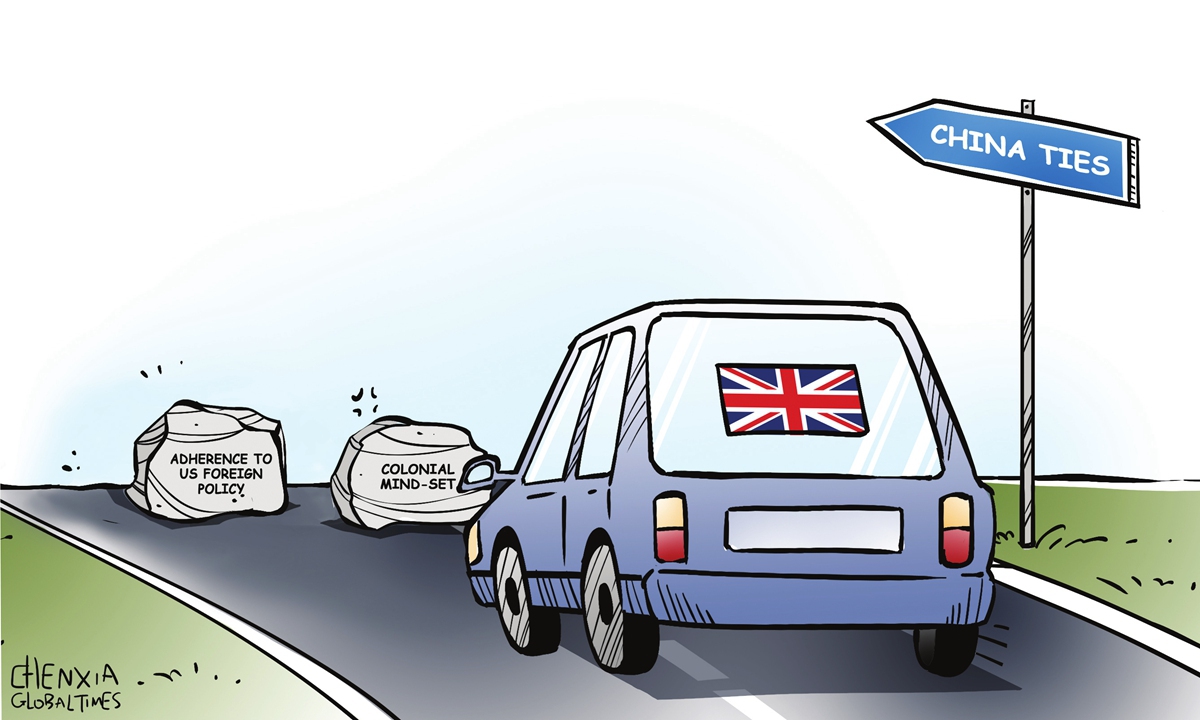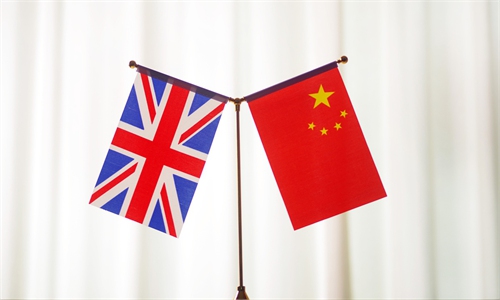
Illustration: Chen Xia/GT
Earlier this week Labour Peer and influential figure Peter Mandelson openly called for the UK to re-engage with China during a lecture in Hong Kong. Mandelson, who is an advisor to Prime Minister Keir Starmer, accused the previous governments of "sabotaging" relations with Beijing, ending what was known as the "golden era" of ties with China.
The call comes amid the new government's immediate moderation of the anti-China policies enacted by its predecessor, as well as Starmer's phone call to the Chinese top leader. While China hawks in the UK may gnash and wail at this rapprochement, Mandelson is correct in identifying it is absolutely in the UK's national interest to do so.
First, Lord Mandelson's claim that the previous governments' "boycott" of China is very much true. The previous governments, including across the Boris Johnson, Liz Truss, and Rishi Sunak eras, actively sought to court the US as Britain's preferred partner following Brexit, which saw them succumb to American demands on a hostile approach to China, obsessed with an ideologically focused "trade agreement" with Washington that the White House has never shown any serious interest in. Likewise, political instability in the government owing to recurring scandals and its widespread unpopularity led them to substitute proper governance for an emphasis on populist right-wing talking points.
Thus, fear of China was repeatedly weaponised for political gain, such as the deliberate leaking of "China influence" stories to distract from unfavourable press coverage. Similarly, the Conservative Party has always been famed for its factional conflict, with right-wing factions having a long history of actively undermining the government's foreign policy in the pursuit of ideology above pragmatism.
It was following "Brexit," an outcome caused by such factional conflict in the first place, that the Eurosceptics, led by Iain Duncan Smith, converted themselves into an anti-China bloc and frequently sought to rebel and undermine government attempts to engage with Beijing.
The political weakness of the government amid the accumulating COVID, "partygate" and other scandals, combined with US pressure, undermined their authority and made it impossible to ignore them, with which Brexit had the effect of making it impossible for Downing Street to formulate a stable or coherent policy reflective of Britain's national interests.
The UK had alienated Europe, subjugated itself to the US almost willingly and then subsequently burnt bridges with China. The outcome of these domestic and foreign policies together has hastened Britain's economic decline and stagnation, leaving the new government to pick up the pieces and make budget decisions widely decried as unpopular.
For Starmer, part of this effort is to rebuild the bridges burnt by this chauvinistic and ideological foreign policy. For him, this has primarily included re-engaging with the EU in order to re-balance the relationship between Brussels and Washington, but it has also included a reset with China.
While the country's most notorious China hawks are hungry for a new cold war with Beijing and a total capitulation to the worst sentiments of Washington, the reality is that Britain is currently a broken, weak and stagnant country which is marred by economic difficulties and growing political and social unrest. Thus, the reality is that China is an absolutely critical, trade and investment partner for the UK and it is foolish and imprudent to destroy this in the pursuit of ideological objectives.
It is common sense in geopolitics, irrespective of ideology, that Britain has as Lord Mandelson recommended, to have a "strategic dialogue" with Beijing. Many British chauvinists continue to dream of the glory days of the Empire, depicting their country as a mighty power in its own right imposing its vision and interests by force on the world, but this is a bygone era and no longer the case.
The Chinese economy is six times that of Britain's, and thus by taking a "tough stance" against Beijing to appease Washington, the UK is only in fact isolating itself and becoming a passenger, as opposed to a player, in the modern world. The UK will always be closer to the US owing to ideology, culture, language and history, but it remains true likewise that China is equally if not more important to the British economy.
The author is a political and historical relations analyst. opinion@globaltimes.com.cn


